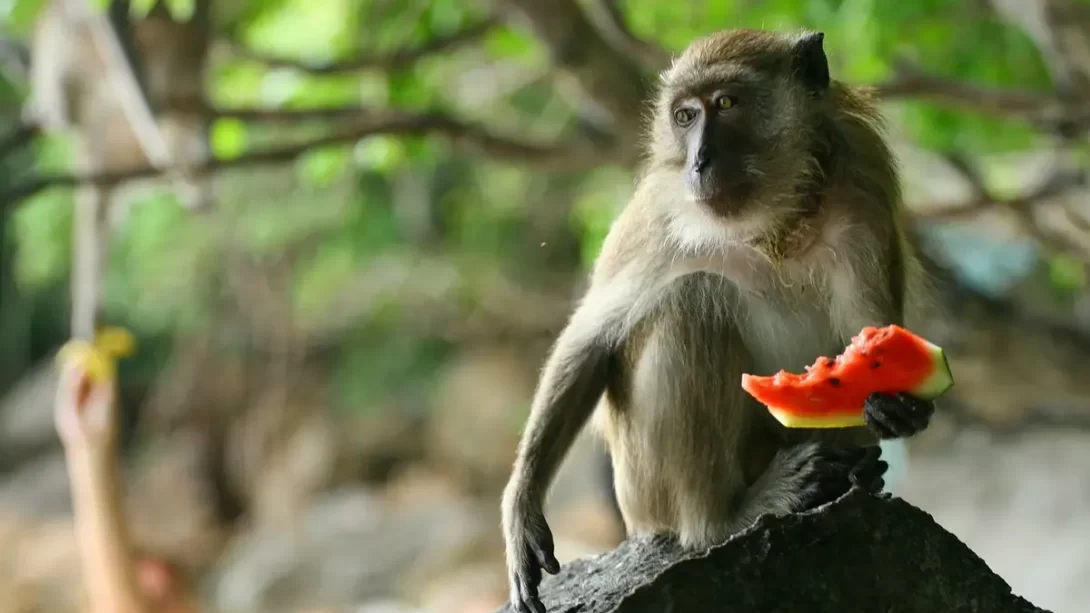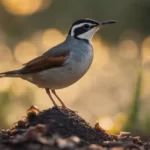Watermelon, a quintessential summer fruit, is beloved not only by humans but also by various animals. Its sweet flesh and hydrating properties make it an attractive treat for many creatures. Understanding which animals are drawn to watermelon can be particularly useful for gardeners and fruit growers, as well as pet owners who might consider sharing this treat with their animal companions.
Watermelon in the Wild
In natural settings, watermelon is not commonly found growing wild, but cultivated watermelons can sometimes be accessible to wildlife. Wild animals may come across watermelons in gardens, farms, or when they are disposed of in nature. The likelihood of animals eating watermelon increases in areas where human activities overlap with natural habitats.
Common Wildlife That Eat Watermelon
A variety of wild animals are known to enjoy watermelon. These include:
- Raccoons: Known for their opportunistic eating habits, raccoons can easily be attracted to the sweet aroma of watermelon. They often eat both the flesh and the rinds, sometimes hollowing out the fruit entirely.
- Deer: Deer are also fond of watermelon. They typically feed on the flesh, leaving the hard outer rind behind. In areas with a dense deer population, watermelon crops can be particularly vulnerable.
- Birds: Many bird species enjoy pecking at the soft flesh of watermelons. They are especially attracted to the seeds and may create small holes in the fruit to access them.
These animals are attracted to watermelon due to its high water content and sweetness, making it a refreshing and nutritious food source, especially during the hot summer months.
Domesticated Animals and Watermelon
Watermelon is not only a favorite among wild animals but also among some domesticated ones. Farm animals like pigs and chickens often enjoy watermelon as a part of their diet. Pigs are particularly known for consuming watermelon whole, rind and all, while chickens tend to peck at the flesh. Watermelon can be a healthy addition to their diet, providing hydration and essential nutrients. However, it should be given in moderation to ensure a balanced diet.
Insects and Smaller Creatures That Feed on Watermelon
Insects are also drawn to watermelon, especially when it is cut open or when the rind is damaged. Ants, bees, and fruit flies are commonly observed swarming around watermelon, attracted by its sweet juice. While they usually don’t cause significant damage to the fruit, their presence can be a nuisance and may deter people from enjoying the watermelon. Bees, in particular, are important pollinators, so their attraction to watermelon can be beneficial in gardens and orchards.
Watermelon as a Treat for Pets
Many pet owners may wonder if they can share watermelon with their household pets, such as dogs and cats. Generally, watermelon can be a safe and healthy treat for dogs, as it is low in calories and high in water content. However, it should be given in moderation and without seeds, as the seeds can cause intestinal blockage. For cats, watermelon is not toxic, but it is not a necessary part of their diet. If feeding watermelon to cats, it should be done sparingly and always seedless.
Preventive Measures for Watermelon in Gardens
For gardeners and fruit growers, protecting watermelon crops from animal consumption can be a significant concern. To deter larger wildlife such as deer and raccoons, fencing around the garden is an effective solution. The fence should be sturdy and tall enough to prevent deer from jumping over. For smaller animals and birds, netting can be placed over the watermelons to protect them while still allowing sunlight and rain to reach the fruit.
Using natural repellents is another strategy to keep animals away from watermelon plants. Homemade repellents, such as a mixture of garlic and chili pepper spray, can deter animals with their strong scent. Additionally, keeping the garden clean and free of fallen fruits or debris can help reduce the attraction for wildlife and insects.
Conclusion
Watermelon is a popular treat not just for humans but for a wide range of animals, including various wildlife, farm animals, and even household pets. While it can be a nutritious and hydrating snack for many of these animals, moderation and proper dietary considerations are important, especially for domesticated pets. For those growing watermelons, understanding which animals are likely to be attracted to the fruit and taking preventive measures can help protect their crops from being feasted on. By employing strategies like fencing, netting, and natural repellents, gardeners can enjoy their watermelon harvest while coexisting with the local fauna. In essence, the relationship between animals and watermelon in gardens and homes exemplifies the interconnectedness of nature and the importance of harmonious coexistence.




